The United States has emerged as a significant contributor to the healthcare industry through the development of innovative mobile applications. These applications are revolutionizing the way healthcare services are delivered, making them more accessible, efficient, and patient-centric. This article explores the notable contributions of the USA in creating healthcare mobile apps, examining their impact on patient care and the overall healthcare landscape.
The Transformation of the Healthcare Industry through Mobile Apps

Mobile integration is significantly revolutionizing the healthcare industry. These apps fundamentally reshape healthcare service delivery, introducing exceptional levels of accessibility, efficiency, and patient-centred care. This article deeply explores how mobile apps play a pivotal role in transforming the healthcare landscape, emphasizing their profound impact on patient welfare and the broader healthcare sector.
Patients now hold potent tools within mobile apps, granting access to medical information, enabling appointment scheduling, and even facilitating telemedicine consultations, removing geographical barriers. Additionally, healthcare professionals benefit from apps that streamline administrative tasks, enable remote patient monitoring, and facilitate secure communication among medical teams.
These apps democratize healthcare, empowering individuals with proactive well-being management tools. From monitoring fitness levels to tracking medication schedules, mobile apps actively empower users to take charge of their health.
How can healthcare mobile apps help patients?

Healthcare mobile apps offer patients a multitude of benefits. These apps enhance access to medical information, enable convenient appointment scheduling, and facilitate direct communication with healthcare providers. Patients can actively manage their health by tracking medications, monitoring vital signs, and receiving personalized health recommendations. Mobile apps also empower patients to participate in telemedicine consultations, breaking down geographical barriers and increasing accessibility to healthcare expertise.
Furthermore, these apps streamline administrative tasks, such as managing medical records and insurance information, reducing the hassle for patients. They also promote health awareness through educational content and preventive care reminders.
The real-time nature of these apps ensures timely communication of test results, prescriptions, and treatment plans. Patients can set reminders for medications and appointments, improving adherence to medical regimens. By promoting self-care, providing educational resources, and enabling direct communication with healthcare professionals, healthcare mobile apps empower patients to take control of their well-being.
In conclusion, healthcare mobile apps have become indispensable tools for patients, offering convenience, education, and direct communication. They facilitate proactive health management and bridge the gap between patients and healthcare providers, ultimately leading to improved patient outcomes and an enhanced healthcare experience.
How can app development for the healthcare industry help doctors and medical professionals?

App development for the healthcare industry offers doctors and medical professionals substantial advantages. These apps revolutionize the way medical services are delivered and managed, leading to increased efficiency, improved patient care, and enhanced communication among healthcare teams.
One significant benefit is the streamlining of administrative tasks. Apps can automate appointment scheduling, patient data management, and billing processes, reducing the burden of paperwork for medical professionals. This allows doctors to focus more on patient care and clinical decision-making.
Healthcare apps provide real-time access to patient records, medical histories, and test results, enabling doctors to make informed decisions promptly. Remote patient monitoring through these apps permits doctors to track patients’ progress outside of traditional clinical settings, offering personalized care plans and timely interventions. This not only improves patient outcomes but also optimizes doctors’ time and resources.
Effective communication is vital in healthcare, and apps facilitate seamless collaboration among medical teams. Secure messaging and file-sharing features allow doctors to consult with specialists, share critical patient information, and discuss treatment plans, all while ensuring patient data privacy.
Medical reference apps offer quick access to the latest research, drug interactions, and clinical guidelines, aiding doctors in making evidence-based decisions. These apps also enable doctors to stay updated with medical advancements, enhancing their knowledge and clinical expertise.
Telemedicine apps have gained prominence, enabling doctors to provide virtual consultations, expanding their reach and making healthcare more accessible. This is especially valuable in remote or underserved areas.
By reducing paperwork, offering real-time patient information, enabling efficient communication, and providing access to medical resources, app development in the healthcare industry empowers doctors and medical professionals to deliver high-quality care, stay informed, and optimize their practice. This symbiotic relationship between technology and healthcare ultimately benefits both medical professionals and the patients they serve, contributing to a more efficient, informed, and patient-centred healthcare system.
Important Facts about Mobile Apps for the Healthcare Industry.

The healthcare sector is undergoing a transformative shift due to mobile apps, which are revolutionizing patient care and management. These apps enable virtual consultations, remote monitoring, and timely medical advice, ultimately enhancing patient access and outcomes.
Streamlined appointment scheduling apps improve patient-provider interactions by simplifying booking, record access, and reminders. Medication management apps play a crucial role in enhancing patient adherence. They send timely reminders and track medication intake, effectively minimizing the risk of missed doses.
Diagnostic apps provide invaluable assistance to medical professionals, offering references, clinical guidelines, and symptom checkers to refine diagnoses and treatment plans. Meanwhile, mental health apps prioritize overall well-being, offering tools for meditation, stress relief, and mood tracking.
Additionally, fitness and wellness apps promote healthy lifestyles with personalized workouts, nutrition tracking, and wellness challenges, fostering active engagement.
These mobile apps reshape healthcare by emphasizing accessibility, convenience, and improved outcomes. They also encourage proactive patient involvement. As technology advances, the impact of these apps is set to accelerate, nurturing a patient-centred and efficient healthcare ecosystem that benefits both patients and medical professionals.”
Top Healthcare Apps Transforming Medical Industry In The US

The healthcare landscape in the US is undergoing a groundbreaking shift due to innovative healthcare apps. These cutting-edge applications are fundamentally reshaping patient care, medical management, and the entire healthcare process.
Telehealth apps are leading this transformation, providing patients with convenient access to virtual consultations, remote monitoring, and timely medical guidance. These apps bridge geographical gaps, ensuring medical expertise reaches patients across various locations.
Streamlining the patient-provider connection, appointment scheduling, and management apps enable easy booking, access to medical records, and receipt of reminders. This facilitates a more organized and efficient healthcare experience.
Playing a crucial role in enhancing patient adherence, medication management apps send reminders and track medication intake. This reduces the risk of missed doses, empowering patients to control their health proactively.
Diagnostic assistance apps offer medical professionals access to references, clinical guidelines, and symptom checkers, aiding more accurate diagnoses and refined treatment plans.
Mental health-focused apps provide tools for meditation, stress relief, and mood tracking, prioritizing overall well-being and support.
Encouraging healthy lifestyles, fitness and wellness apps offer personalized workout plans, nutrition tracking, and wellness challenges.
The transformation catalyzed by these healthcare apps is reshaping the US medical landscape. With an emphasis on accessibility, convenience, and improved outcomes, these apps alter healthcare delivery and empower individuals to actively engage in their health journey.
As technology continues to evolve, the impact of these apps is poised to further accelerate, fostering a healthcare ecosystem that is patient-centered, efficient, and technologically advanced.
FAQ’s
Q1: How have innovative healthcare mobile apps from the USA transformed the industry?
A1: Innovative healthcare mobile apps from the USA have revolutionized patient care by enabling remote consultations, medication tracking, and health monitoring, leading to improved accessibility and personalized treatment.
Q2: What are the key areas of healthcare that have been influenced by these mobile apps in the USA?
A2: These apps have impacted various areas including telemedicine, chronic disease management, mental health support, fitness tracking, and medication adherence.
Q3: Can you provide examples of successful healthcare mobile apps developed in the USA?
A3: Certainly. Notable examples include “Teladoc” for virtual consultations, “MyFitnessPal” for fitness tracking, “Headspace” for mental health, and “Medisafe” for medication management.
Q4: How do AR, VR, and wearable technologies play a role in these innovative healthcare apps from the USA?
A4: AR and VR enhance medical training and patient education. Wearable technologies like smartwatches monitor vital signs, encouraging proactive health management.
Q5: What benefits do users and healthcare providers gain from the contribution of these apps to the industry in the USA?
A5: Users experience greater convenience, real-time health tracking, and personalized care. Healthcare providers benefit from improved patient engagement, data-driven insights, and streamlined communication for more effective treatments.







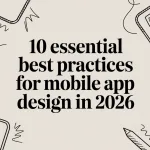
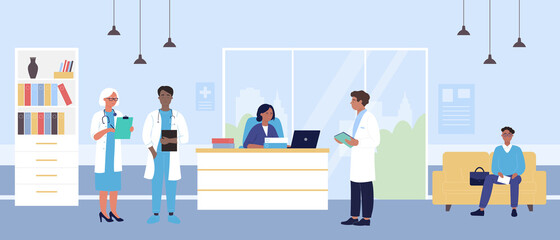
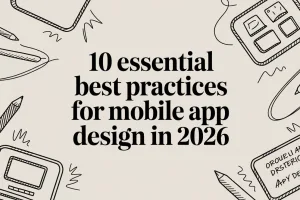
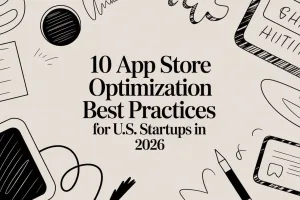
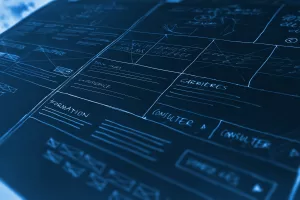





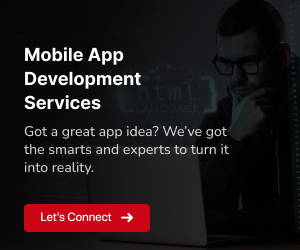
Add Comment